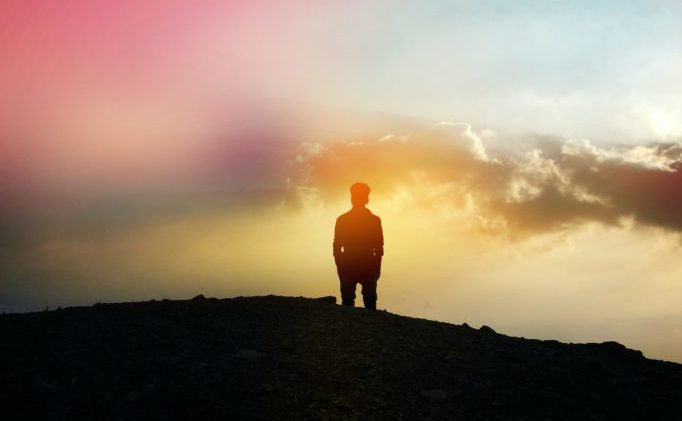[Published March 12, 2015 Reprinted with permission of Warren Communications News. 800-771-9202 and www.washingtoninternetdaily.com May not be further reprinted or redistributed without permission from Warren.]
By Katie Rucke
Minors aren’t immune from becoming victims of revenge porn, opponents of websites that release intimate videos and photos without the subjects’ permission said in interviews this week. Kids appearon all revenge porn sites that law and technology blogger Adam Steinbaugh came across, he said. In some instances, a police report saying the girl is underage accompanies the pictures, Steinbaugh said.
All sexual images and videos of children 15 and younger, as tracked by the U.K.-based Internet Watch Foundation, have been taken from an original online location and uploaded to another site, according to an IWF study sponsored by Microsoft and released Tuesday. Sixteen states have revenge porn-specific legislation, but none has a specific clause addressing how children are affected because those images already are covered by child pornography laws, said Cyber Civil Rights Initiative (CCRI) Executive Director Holly Jacobs. Adults have also complained about revenge porn, and the FTC has acted to shut down a site (see 1502040042).
Of the 3,803 images and videos IWF identified on 230 sites September through November 2014, 17.5 percent featured children 15 and younger, the group reported. During a similar study in 2012, no one under age 13 was spotted, IWF said. Of those 15 or younger, 86 percent used a webcam to take nude or semi-nude images or videos, the IWF found. Just 8.5 percent were taken with a mobile phone, “challenging the belief that the majority of ‘sexting’ photos are captured via cellphone,” the IWF said. Microsoft Chief Online Safety Officer Jacqueline Beauchere said in a blog post that the company will work to “create and deploy appropriate technology, raise awareness and help to educate the public” about the risks associated with suggestive “selfies.”
The youngest revenge porn victim that Carrie Goldberg, an attorney specializing in cases involving Internet privacy and survivors of sexual assault, has represented is 13. For those under 18, the sexually explicit images were typically shared consensually in the context of a private relationship, Goldberg said, but there’s no single reason for which the photos are later shared publicly. An ex-partner may show a photo to a few people, forward it via text message or in some cases post the photos on Instagram or Twitter to “humiliate, harass and abuse” after the relationship ends, Goldberg said. On 4Chan and Reddit, some have turned nude pictures into a competitive game and will post the photos for money, bitcoins or “just the fun of it,” she said. As seen with a celebrity photo hack last year, someone’s computer, email account or cloud can be hacked and the photos then shared, Goldberg said.
“There’s no standard perpetrator,” said lawyer Elisa D’Amico, among the revenge porn specialists at K&L Gates. Sometimes it’s an ex-lover, but sometimes it’s an unknown Internet user or complete stranger who saved the image and reposted it, or it’s the ex-boyfriend’s new girlfriend, she said.
Child Porn Law
A victim’s age affects the forensic evidence that can be gathered, as it’s illegal to take screen shots of pornographic photos of anyone younger than 18, D’Amico said. There is less concern over who took the photo and who owns the copyright, as child pornography is illegal content, she said. When rumors spread that some of the photos released in the “Celebgate” hack were taken while the celebrities were underage, the images disappeared immediately, D’Amico said. “It’s quite powerful,” she said, talking about the child porn law. Websites are more responsive when images of children under the age of 18 are involved, Goldberg said. “We need federal and state criminal laws to deter the nonconsensual distribution,” and have sites take some responsibility for the images, Goldberg said. “Perpetrators of revenge porn are more likely to respond to the threat of criminal prosecution than other tools victims currently have such as suing a perpetrator in civil court or copyright infringement.”
Child porn laws predate the Internet, Goldberg said. Very few law enforcers arrest underage people for creating and distributing porn, whether consensual or not, but the victims theoretically could be charged, Goldberg said. Sometimes underage victims or their parents are told by law enforcement that if they take on a child’s revenge porn case, the victim could be charged with the creation and distribution of child porn, Jacobs said. States with sexting laws give prosecutors and judges an option to send victims and perpetrators to a one-day program about cyberbullying and cybersafety instead of charging a child with child porn charges, Goldberg said, but that doesn’t happen everywhere. Last summer six people in a New Jersey school, including victims whose images had gone viral, were charged with child pornography, Goldberg said.
“It’s immoral to arrest victims of revenge porn,” Goldberg said, as they already are dealing with the “humiliation of their private sexual information being distributed.” Even if the charges are later reduced, there is the stress of having to defend oneself against a felony, with consequences including jail time or inclusion on the sex-offender registry, in addition to the time and money for the defense, she said.
Legislative Efforts
Federal legislation banning revenge porn is expected in the next few months, Rep. Jackie Speier’s, D-Calif., office told us last month (see 1502040042). Legislation to protect revenge porn victims has been applauded by privacy advocates and criticized by free speech advocates. That is why Speier’s legislation is tailored to protect free-speech rights while securing people’s privacy, her office said.
Sexting is illegal if the image is of anyone under the age of 18, no matter who sends the photo, according to a recently released Microsoft fact sheet on sexting. A 2010 FBI report said sexting continues to rise in popularity among teens. Sexting can lead to criminal child porn charges in 30 states, the fact sheet said. Twenty states have passed laws reducing the charges to a misdemeanor, it said. The Department of Justice’s current legislative proposal doesn’t address revenge porn specifically, but “this is certainly an area of enforcement that we are investigating and prosecuting,” a DOJ spokesman told us.
“New laws prohibiting nonconsensual pornography should be generally applicable to people of all ages,” as child porn laws shouldn’t be used against victims, CCRI Tech Policy Director Mary Anne Franks said. Instead, Franks, also an associate professor at the University of Miami School of Law, recommended teenagers who engage in consensual sexual conduct not be punished. “We’ve heard of cases in which a minor victim tells police that she sent her boyfriend a naked picture and that he distributed it without consent, and she’s the one who gets prosecuted for producing and distributing child pornography and he won’t get charged with anything,” she said. “A teenager taking a naked picture of herself should under no circumstances be considered a criminal, nor should she be considered a criminal for sending it to the person she is dating.”
Copyright© 2015 by Warren Communications News, Inc. Reproduction or retransmission in any form, without written permission, is a violation of Federal Statute (17 USC 101 et seq.).



